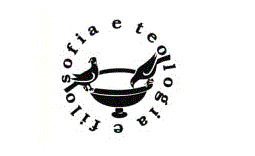


Questo contributo offre un'analisi del recupero da parte di Leo Strauss del carattere radicalmente ateo della filosofia "socratica". È diviso in quattro parti. Nella prima ricostruirò il contesto storico-filosofico che spinse Strauss a interrogarsi sul trionfo storico dell'ateismo moderno sulla religione rivelata. Nella seconda parte presento quello che Strauss ha identificato come il “significato originario” della filosofia. Mostro come esso debba essere distinto dall'atteggiamento di ateismo dogmatico che caratterizza invece il pensiero filosofico moderno. La terza parte sarà dedicata all'analisi di una figura letteraria che mette in luce i principali difetti dell'“originario ateismo filosofico”, ovvero il Socrate di Aristofane. Come sosterrò, questo ritratto comico è quasi paradigmatico nel modo in cui articola i problemi legati a un rigoroso rifiuto di qualsiasi opinione basata sull'autorità o sulla tradizione. Nella quarta e ultima parte spiegherò perché è di fondamentale importanza che anche oggi, dopo Nietzsche, si ponga la questione della natura radicalmente atea della filosofia, e la si consideri nelle sue conseguenze sociali e politiche.
Parole chiave: Leo Strauss, ateismo, empietà, Socrate. Aristofane
This contribution offers an analysis of Leo Strauss’s recovery of the radically atheistic character of “Socratic” philosophy. It is divided in four parts. In the first one, I will reconstruct the historical-philosophical context that prompted Strauss to question the historical triumph of modern atheism over revealed religion. In the second part, I present what Strauss identified as the “original meaning” of philosophy. I show how it must be distinguished from the attitude of dogmatic atheism that characterizes instead modern philosophical thought. The third part will be dedicated to the analysis of a literary figure which highlights the main defects of the “original philosophical atheism,” namely Aristophanes’ Socrates. As I will argue, this comical portrait is almost paradigmatic in the way it articulates the problems related to a strict rejection of any opinion based on authority or tradition. In the fourth and last part I will explain why it is of fundamental importance that even today, after Nietzsche, we raise the issue of the radically atheist nature of philosophy, and consider it in its social and political consequences.
Keywords: Leo Strauss, Atheism, Impiety, Socrates, Aristophanes